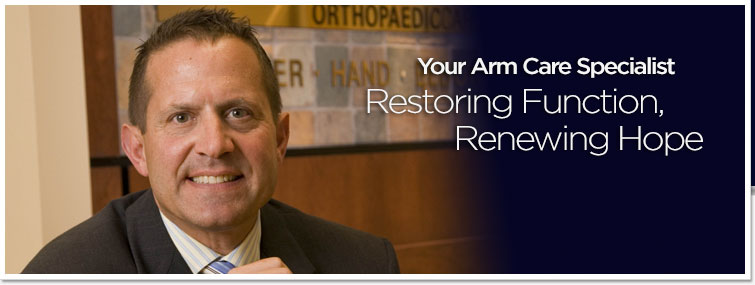NOTICE:
Our Practice has MOVED
Our new location is:
Suite 405
1815 South Clinton Ave
Rochester, NY, 14618.
The NEW phone number is 585-565-3500
Our Practice has MOVED
Our new location is:
Suite 405
1815 South Clinton Ave
Rochester, NY, 14618.
The NEW phone number is 585-565-3500

For appointments call
585.565.3500
Fax Number:
585.434.4081
585.565.3500
Fax Number:
585.434.4081

Forgive and Remember
June 22nd, 2016
Failure in life---no matter how great or small, can provide a transformational opportunity for growth. In fact, most if not all innovation is the result of trial and error, a consequential response or iteration, and so forth. Indeed, in medicine, progress has relied on the scientific method forever. However, failure is too often stigmatized----as an indictment on competence or integrity, evidence of recklessness or irresponsibility, or just bad luck.Matthew Syed, in Black Box Thinking makes the observation that cognitive dissonance---mental tension when we cannot embrace that we may be fallible---prohibits our appropriate response to failure. Rather than using failure a s a gift of sorts, because we as humans may be fallible, we reframe failure in a manner that dismisses it; in so doing, we deprive ourselves of learning opportunities. Syed makes the point that in healthcare this happens all the time, largely because physicians cannot accept failure without it jeopardizing their expertise or sense of self. In a similar way Carol Dweck in Mindset: The new psychology of success reveals the perils of a fixed mindset as opposed to a growth mindset.
I have become very interested over the past several years in barriers to high performing teams. I have been on good teams and bad teams, but not until my own opportunity for growth did I appreciate my role on both.
I recently contributed a blogpost to the Journal of Hand Surgery (jhsfocus.org), entitled Forgive and remember and share it below:
Since I was informed of New York State’s investigation of my practice in 2010, when a drug-seeking patient complained that I did not prescribe postoperative narcotics, I have had ample time for introspection and self-evaluation. Indeed, I have asked myself how such a “good physician” and “good man” could be shamed so mercilessly, particularly since I, like Mark Chassin expressed in “The Wrong Patient” (Ann Intern Med 2002), have deplored “low expectation” for my entire career?
New York State’s investigation uncovered a wrong site surgical error from October 26, 2006 (I performed a carpal tunnel release instead of a deQuervain’s release), which was caused not only by my own human error, but also due to a “system failure”– no timeout procedure. And it revealed a state reportable infraction from 2009, when I closed a total shoulder wound completely while I waited 20 minutes for an x-ray to check for a missing sponge. I was indeed accountable, although had I been given the opportunity to explain my thinking errors, I am sure that my mistakes would not have been viewed so nefariously.
Regardless, the gravity of my sanction reflected a breach of what Thomas Paterson, in 1961, regarded as a physician’s “moral authority,” and what sociologist Elliot Freidson, in 1970, claimed was the basis for a physician’s privilege to work as a professional in an “unsupervised setting”- my integrity.
Because the State Health Department is charged with safeguarding the public, even a disgruntled drug-seeking patient had a voice, and neither my reputation as a talented orthopaedic subspecialist, nor my lengthy curriculum vitae, membership in a local Catholic parish, admiration from countless patients, or love and esteem of family and friends were relevant. The practice of medicine has changed since the days of Sir William Osler, when trust and confidence and an uncompromising commitment to the Hippocratic Oath were never doubted. Osler, himself, credibly explained his whistling as he left a dying woman’s bedside quoting Byron “tis that [she] may not weep.”
Today his conduct might be questioned and even criticized. The potential imbalance of power between patient and doctor, even if only perceived, mandates not only vigilance but the imposition of consequences for impropriety as well. This has arguably increased the burden on physicians to be not only beyond reproach but to appear so —always i.e. 24/7/365.
And so, my past errors are very relevant. They were an inflection point for me. I had the opportunity to set aside all of my past accomplishments and to seriously reflect on how I might improve myself going forward. I am grateful that my sanction is in the past. My “monitoring” ended in 2014, and I practiced for 3 years during that scrutiny with very little judgment from patients; they trusted me. Unfortunately, within the small community of my professional peer group, a few with competitive antipathy seemed intent on keeping my errors alive, as if they defined me.
Fortunately, I moved forward with gratitude and more intently placed each patient as the focus of my expertise. I began switching my currency from number of cases and how well done to whether patients felt adequately listened to and cared for. And, in the process, I became an even better physician. I used my “disorienting dilemma” as a transformational opportunity. The process of moving forward has included a heightened appreciation for leadership as a process, not a position, and of the importance of being fully present in the moment — not overly burdened by stress or fear of failure. I am increasingly self-aware of my shortcomings and how I am “experienced” and have improved a skill set that is non-technical. My currency as a surgeon in a field too often replete with self-absorption has shifted to prioritize communication, empathy, patience, and relationship-building.
Charles Bock’s book Forgive and Remember-Managing Medical Failure provides a fitting imperative. Failure provides an opportunity to grow. Accepting accountability ensures that its lessons are not forgotten.
*POST EDITED BY DR. TOMAINO.
Replies
No replies!



